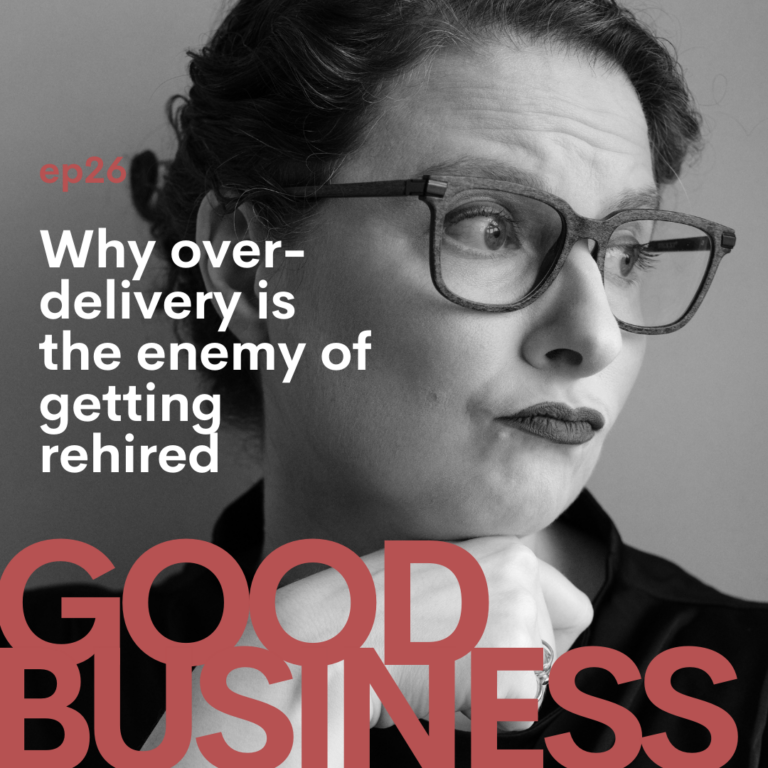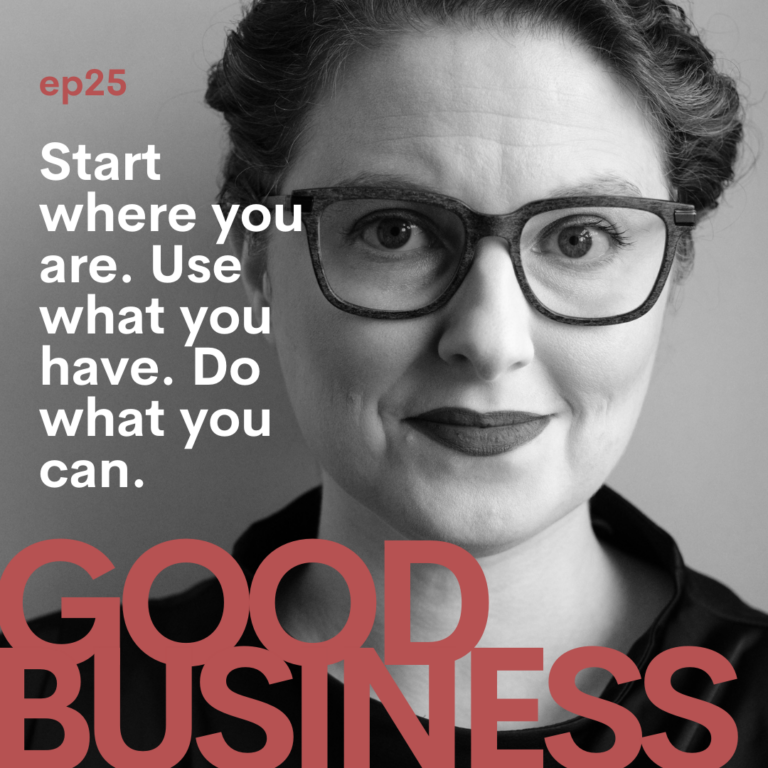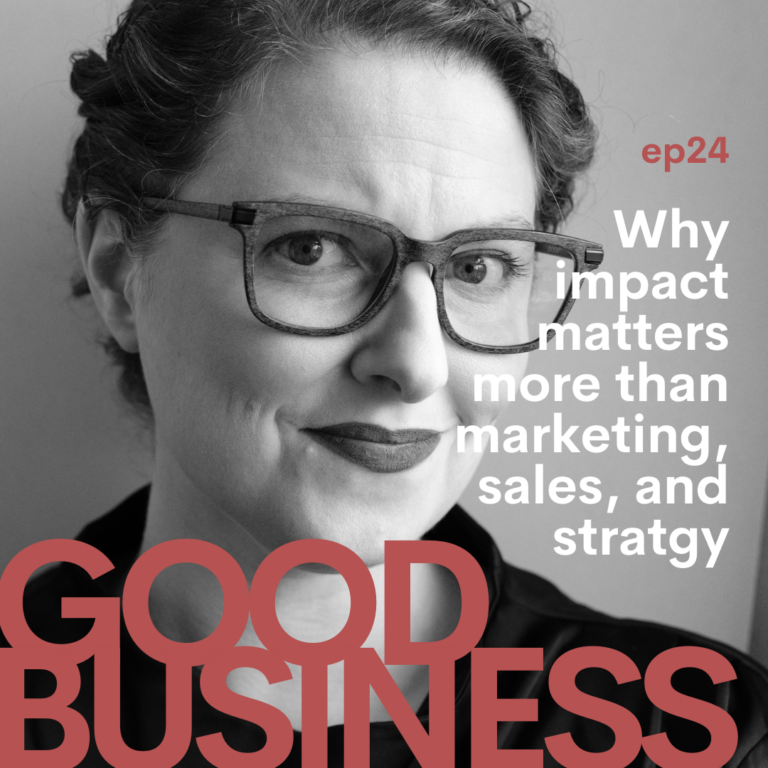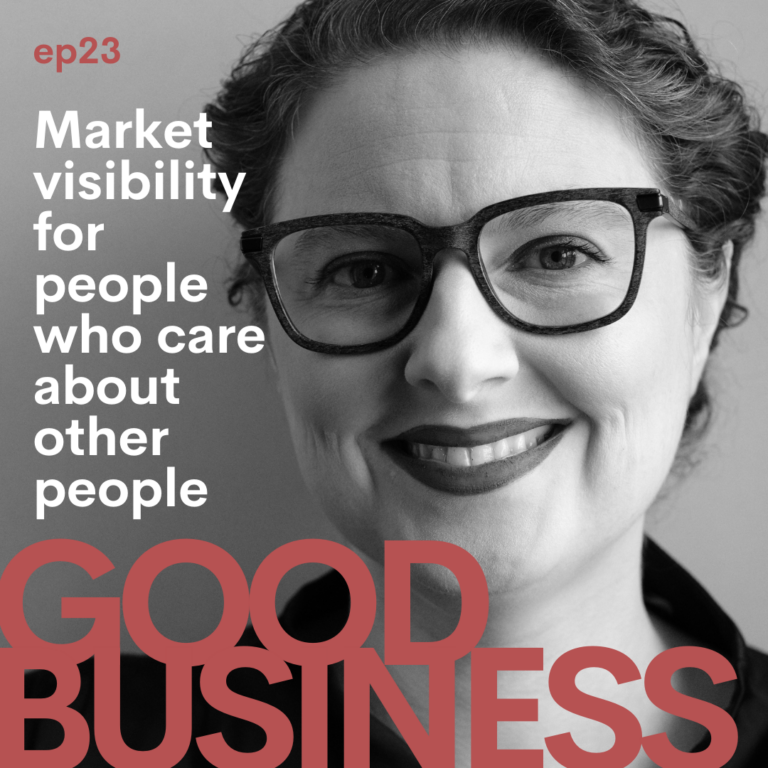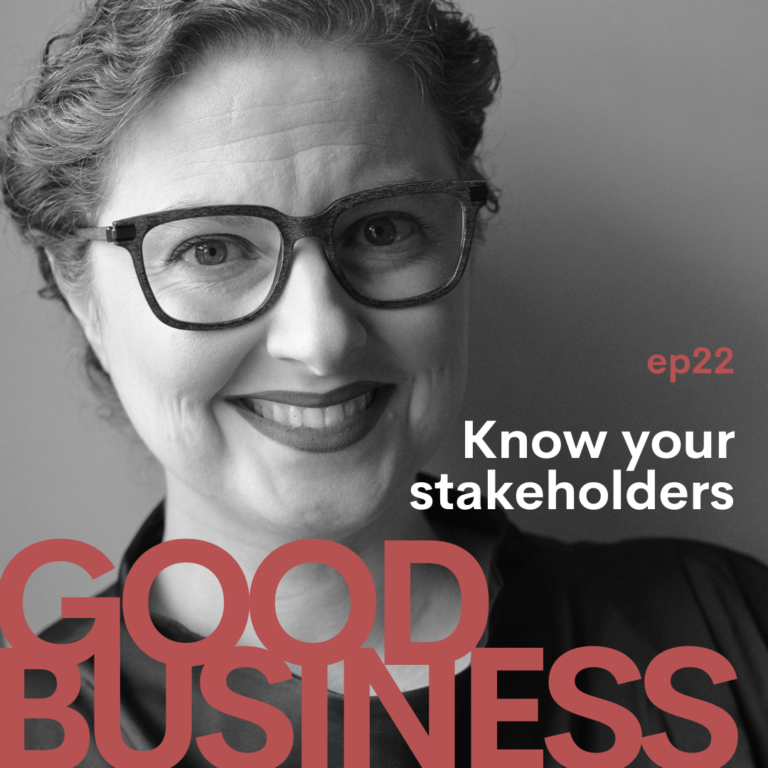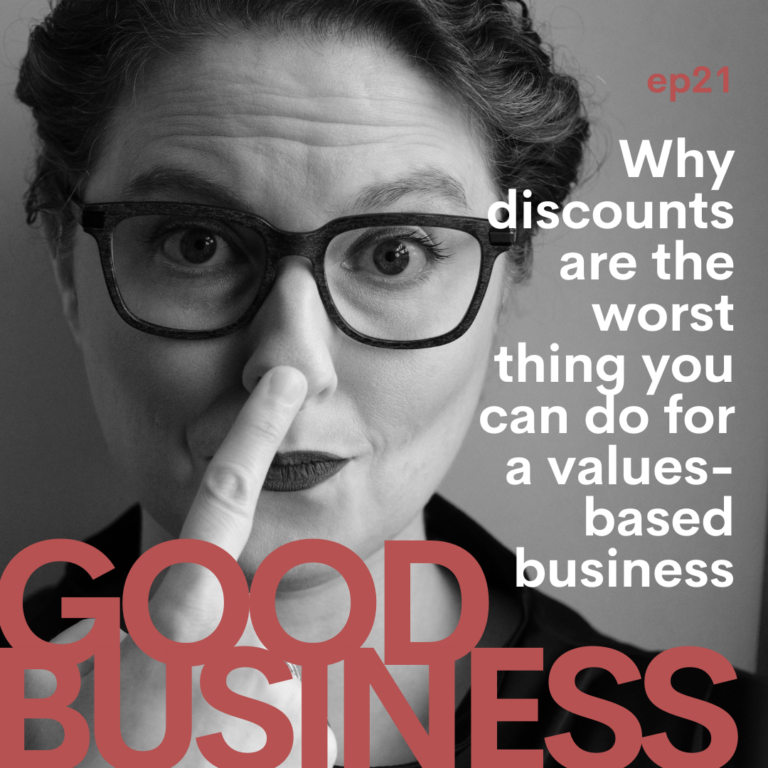Today’s episode is on one area of what people call the ‘CEO Mindset’. First, we’ll dig in a little to what people THINK this means. Then, we’ll talk through what it ACTUALLY means. And finally, we’ll wrap up with some simple truths about how to do this better and why doing so is necessary to actually grow.
Episode Transcript:
I’m Illana Burk, CEO of Your Life’s Workshop, coach to entrepreneurs and solopreneurs across dozens of industries and host of Good Business. With nearly 20 years experience helping hundreds of clients create profitable, ethically driven and sustainable businesses based on their life’s work, I’m here to teach you how to do great work, make great money, and make a positive impact without feeling like you need a shower afterwards.
Hi everybody. Today’s episode is about one area of what people call the CEO Mindset. There are about a million things I could approach with this particular topic that I could rail on for quite a while. Today we’re going to talk about just one little corner of it. First, we’re going to dig into what people think this phrase means. Then we’ll talk about what it means in the context that we’re going to talk about, which is mostly around power. Finally, we’re going to wrap up with some simple truths about how to do this better and why doing so is necessary to actually grow.
So first, as solopreneurs, we are told so many of the wrong things. My God, we’re told so many wrong things. We’re told to always stay positive, to focus on your assets, to look for what’s marketable, be brave, promote, promote, promote. Most people regard the CEO mindset as essentially thinking like a leader. All these things are true. They just aren’t the whole story.
To think like a CEO, you also have to look hard at the hard stuff, the dark stuff, and that’s what we’re talking about today. The dark stuff. None of these statements about how to lead are actually really all that meaningful or useful. Why? Because leadership is a wholly subjective concept in and of itself. Getting people to buy from you or follow you is not the definition of leadership that I use. For me, leadership is defined with far more nuance and subtlety. In a nutshell, and so today’s episode has a little more context of where I’m coming from, for me, leadership is about understanding one’s power and wielding it responsibly. It’s like all Spiderman and shit, right? With great power comes great responsibility. It’s about looking for pioneering paths and being brave enough to take them first, to be the first one out. And finally, it’s a willingness to teach others to follow carefully in your footsteps and giving them every tool you can to succeed on their version of that same path.
Today we’re talking about the one aspect of that, which is about responsibility. How thinking like a CEO actually means facing the dark, paying attention to threats, noticing what’s wrong so you can actually fix problems even when those problems are within you. So things like competitive disadvantages, threatening trends, personal shortfalls, general faults, financial realities, time constraints, resource shortages; paying attention to that stuff are also what a CEO is all about. It’s not just big thinking and planning and marketing and fun stuff. Just as much as all that is part of it, this has to be there too. It’s making the tough decisions and actually thinking about them at every turn. It’s looking at the negative instead of being positive all the time.
For every super fun brainstorm session about your next course or your next blog strategy or your next YouTube channel, there should always be a clear grounded look at the stuff that’s no fun at all to think about. You have to ask yourself the really tough questions like, What’s the worst thing that could happen here? What could people misunderstand about what I’m putting out? How does doing x affect y and z later on? What’s the three-year effect of what I’m doing right now? Is someone out there doing it better? Why do I want to do this in the first place? What are my motivations driving this, and are those the right factors that should be driving it? Most important, am I leading from my values and my desire to be of service first?
You have to ask yourself those questions. You have to know what the answers are or you can’t make decisions that hold any level of responsibility for what you’re putting out into the world. When I think about a project, when I think about when I’m doing something new (and my projects tend to take a really long time because I think so hard about them), I have to think about the fact that I have a lot of credibility. I have to notice the power that I have and understand it. I have to pay attention to the fact that when I talk, people listen. Maybe if it’s even five people or 10 people or 5,000 people, it doesn’t matter. If I give one person terrible advice that was shortsighted or ill-thought-out, I could ruin their life and taking responsibility for that isn’t about ego.
It’s about knowing that that’s a possibility. That there could be somebody who you might be the only voice they listen to, and that’s a possibility always. It has to sit in there with all of those thoughts of, “yeah, but you’re not their only teacher, and they have plenty of other influences, and you’re not responsible for their behavior.” But you are responsible for yours. That’s what I’m talking about. It’s knowing that’s in there. Knowing that that’s a possibility is extremely important.
The next time you’re working on a project, I want to challenge you to not just think positive. Think negative, too. Pay attention. Really, really think about what the worst-case scenario could be. Think about how many marketers don’t do that. What’re the ramifications? How might people take something that you say? What are they seeing that you might not be seeing?
Ask for feedback. Ask for feedback from people of other cultures. Ask for feedback from people of other socioeconomic levels than yourself. Get out of your comfort zone and notice that in the land of the Internet, things are going to have a ripple effect. Where might those ripples go? If you think about the biggest version of your success, what could happen if you don’t think about what the dumb joke that you made today could end up? You know, how it could play out five years from now. You’ve got to think through everything these days, and I think far too few people that are solopreneurs bother to do this. I really want to be the voice that encourages you to.
Okay, everybody, I hope you have a great day. Thanks for joining us on today’s episode and please subscribe at thegoodbusiness.co on our regular old website. It’s not as sexy as iTunes, but it does afford you the first opportunity at some of the cool free courses that we’re going to be offering very, very soon. You guys have a great day. Bye Bye.
Thanks so much for hanging out with me today. For more information, visit www.thegoodbusiness.co or www.lifesworksdev.wpengine.com.
More Episodes
Why overdelivery is the enemy of getting rehired | GB26
Today’s episode is all about why over-delivering is a really good way to not get asked back for more work. We all think doing our best and giving more than people asked for is a good thing. And in some ways, it is. Things like adding extra value to something you do is fine. What I’m talking about is when you completely blow the scope of what was asked of you out of the water. It’s one of the hardest things to identify when you’re trying to figure out why no one seems to hire you twice.
Start where you are. Use what you have. Do what you can. | GB 25
Today’s episode of The Good Business Podcast is all about my very favorite quote in the whole world. “Start where you are. Use what you have. Do what you can.” by Arthur Ashe
Why impact matters as much as marketing, sales, or strategy. Maybe more. | GB24
Today’s episode is less of a lesson than recent episodes. Instead, today we’re making a case for a topic we’ll be talking a LOT more about in the future: IMPACT. What it is. Why it matters. And how to pay attention to it.
Market visibility for people who care about other people | GB23
Today is a branch off of our stakeholder conversation. If you listened to that episode, you should have a clear picture of exactly who matters to you and your work and why, as well as how much time you have for your work without sacrificing what those VIPs need and expect from you. Next up, we talk about exposure, protection, and the responsibility you have to those who matter most.
Know Your Stakeholders | GB22
In this episode, I’m going to walk you through how to think about establishing your stakeholders, the steps you need to take to do so, and how to make decisions based on who they are without compromising those big fat dreams we’ve been talking about.
Pricing Basics: Why discounts are almost never a good idea | GB21
Today’s episode dovetails on our last one, where we talked all about how your value isn’t determined by your price tag. Today, we’re talking about discounts. First, we’ll talk about why businesses offer them, what their purpose is and when they ARE a good idea. Then we’ll talk about why they are probably a bad idea for you and what to do instead.

